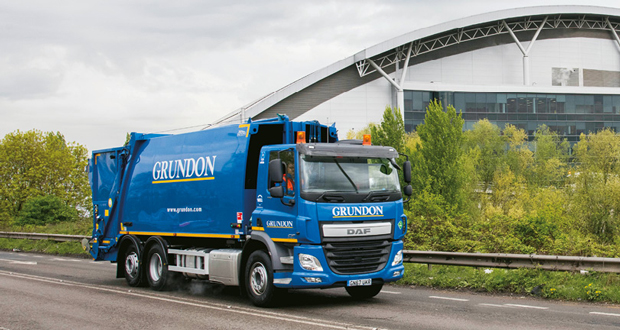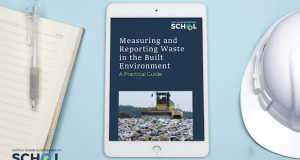 The 2023 survey* by FMJ in partnership with Grundon Waste Management reveals transparency and commitment to environmental issues are among the top requirements looked for in a waste management provider. Grundon’s Jack Yarrow says honesty is the best policy
The 2023 survey* by FMJ in partnership with Grundon Waste Management reveals transparency and commitment to environmental issues are among the top requirements looked for in a waste management provider. Grundon’s Jack Yarrow says honesty is the best policy
The demand for auditing and ESG (Environmental stewardship, Social responsibility and corporate Governance) reporting is increasing all the time, with the result that facilities managers are demanding more answers and more evidence about how we handle their waste.
We’re constantly asked what happens to the waste we collect. If we tell our customers they are now zero waste to landfill, they want to see our Energy from Waste facilities first-hand. If we want them to segregate their waste, they want to know why, where it goes and what the benefits are. If we tell them we have a certified CarbonNeutral® fleet of waste collection vehicles, they want to see it for themselves.
I think this is real progress.
We have seen a huge rise in the number of customers requesting tours of our facilities and we welcome the opportunity to show them first-hand how we treat waste because in turn, it empowers them to champion the correct processes within their workplace.
If people say that old common phrase ‘but it all goes to landfill’ they can say ‘no, it doesn’t, I’ve been there and I’ve seen how it is managed’.
When a customer is audited (for instance by their building management company), and the FM is asked for statistics on waste collections, the FM will be safe in the knowledge that we can supply all the necessary documentation.
TRANSPARENCY
For the survey, when FMs were asked about the priorities they consider when making a decision about who manages their waste; they named transparency and a provider’s commitment to environmental issues as the most important.
This is why it’s important to accurately weigh all waste collected, whether that’s wheeled bins or rolonoff (roll on roll off) collections, so waste reports are completely transparent. It’s also important to put a real emphasis on flexibility, so if there are seasonal events such as term times, holidays or special promotions etc., then we can scale collections up or down as required.
We can also demonstrate our own commitment to environmental issues as we’ve been measuring our own company-wide carbon footprint since 2000, reducing carbon emissions over that period by an impressive 79.74 per cent despite growing our business.
For FMs, other considerations raised in the survey included quality and service guarantees, the provider’s knowledge of waste legislation and compliance regulations, as well as the ability to receive waste statistics and analysis. This all makes perfect sense, and reflects all the questions we are asked and the requests we receive for tours.
Previously, cost of collection and disposal has always made the top five, but I think now FMs are recognising that while any waste supplier needs to be mindful of budgets, it is the added value in terms of honesty and sustainability commitment which are most valued.
It’s a pattern that continues to repeat. This time, nearly 52 per cent of FMs said they believe a good waste management service will deliver improved environmental credentials the highest percentage since pre-COVID times – and this fits with the increase in reporting.
Is there an expectation within your organisation that a good waste management service:
|
Will deliver improved environmental credentials |
51.92% |
|
Will save you money |
19.23% |
|
Will cost you more money |
11.54% |
|
Won’t make a difference |
10.58% |
|
Will earn you rebates on reprocessing and recycling |
6.83% |






